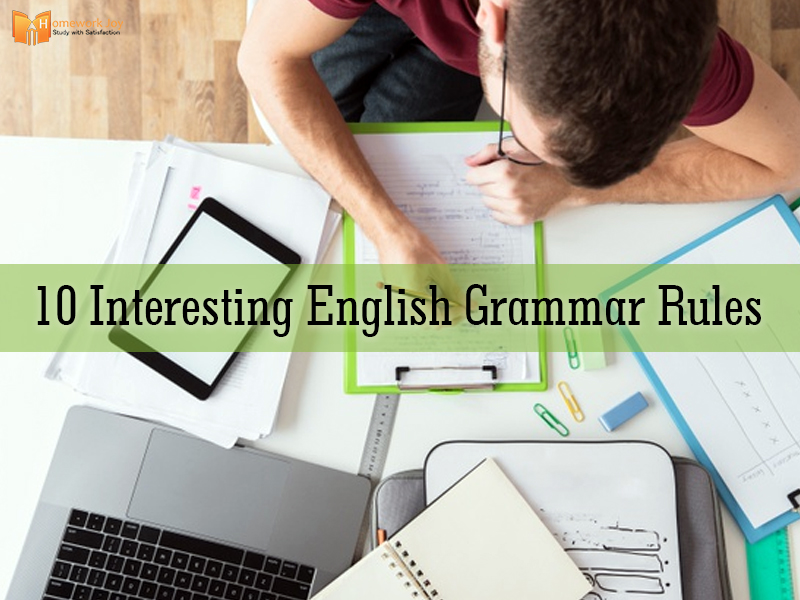Let’s face it; learning English grammar rules is not always fun. Sometimes, it can be complicated and tedious. But these rules are essential for English learners to govern the language to express themselves clearly. English grammar is not a group of rules; it is like the base of the building. In simple words, to speak English, your support of English should be active.
English grammar rules explain how words organized in a sentence. You have to put words in a particular order so that when you speak and write, people can understand your writing or speech. Just as a damaged wire can interrupt the telephonic conversation, likewise improper rules of grammar can affect the meaning and clarity of the intended messages.
Why Are English Grammar Rules Important?
Knowledge of basic English grammar rules makes written content more interesting and readable. In our everyday life, from education to leadership, from work life to social life, these rules are essential. Though there is a massive debate on English grammar rules, some people believe that learning grammar is a waste of time, while others believe that these are basic rules to learn English.
It is only due to grammar rules that people, especially students, feel more confident in the use of language. Most students believe that if they get good marks on a test, this means that they can speak English. But that is not true. If you want to talk English provident, then you must need to know the correct order of the words.
Amusing English Grammar Rules
Here are some interesting rules of English grammar that you should know.
1. And or But
It is perfectly acceptable in English grammar to start a sentence with ‘And’ or ‘But.’ To maintain the fluid of writing, you must use transition words. And no transition is more effective than single words like ‘And and But.’ Best writers and grammarians of English believe that it is ungrammatical to start a sentence with a conjunction.
2. Use of Good
Reputable grammarians consider the adverbial use of the word ‘good’ as nonstandard English. For example,
- The new girl is working good.
- The research and development project is going good.
But you should use ‘well’ in these cases instead of the word ‘good.’ When you are describing manners, action, and performance, then you should use the adverb ‘well.’ For example,
- The new girl is working well.
- Managers worked well as a team.
3. Either and Neither
While using both ‘either and neither’ as the subject of a sentence or clause, verbs should be singular. The prepositional phrases might contain plural objects. But still, when either and neither is in use, the verbs have to be singular. Let’s look at the examples.
- Either of the brothers wants breakfast.
- Neither the mouse nor the cat eats the cake at night.
4. End With Prepositions
The rule that you should not end a sentence with prepositions is based on Latin syntax and is ill-conceived. Many English writers have explained this fault in the nineteenth century. However, if you end the sentence with prepositions, the sentence is rarely convincing. But it is not a mistake according to English grammar rules.
5. -ly ending
Some adverbs formed by adding the suffix –ly in adjectives. For example, simple – simply, large – largely and like ones. But using –ly suffix with words, such as fast, seldom, etc., is of no use. Since they are already adverbs, so there is no need to add –ly suffix to them.
6. I and Me
‘I’ and ‘me’ are not interchangeable. For example,
- James and I left early.
- James and I left early.
In casual conversation, we use the second sentence. But it is grammatically incorrect. Since ‘me’ is a pronoun that serves as an object of the sentence or clause. And I serve as a subject of a sentence. Therefore it is correct to say that ‘I’ and ‘me’ are not interchangeable.
7. Must and Have to
There is a subtle difference between must and have to. Let’s explain it with an example.
- She must do her homework by tomorrow.
- Her teacher said that she has to do her homework by tomorrow.
As ‘must’ is the modal verb used to indicate an obligation or necessity to do something, in your opinion. But ‘have to’ is used to indicate that it is necessary because of some reasons. And in this case, as the girl’s teacher needs it by tomorrow.
8. Joining Independent Clause
Words like, however, therefore and otherwise cannot join independent clauses without additional punctuations. A semicolon should be used in front of the connector and a coma after the connector while joining two independent clauses with a conjunctive adverb. For example,
- The engineers said the bridge is safe; however, no one wanted to risk crossing it.
- The weather is terrible; therefore, you should carry an umbrella.
9. Subject Determines Number of Verbs
The most interesting English grammar rule is that the subject of the sentence determines the number of verbs. Since in all the sentences, the verb follows the subject. Therefore, if the subject is singular, the verb is also singular, and if it is plural, then the verb is also plural. But beware of the prepositional phrase that modifies the subject.
10. Position of Relative Pronouns
The relative pronouns (whom, who, which, and so on) must use alongside their antecedents. There are two types of relative pronouns. First, it can join a dependent clause to an independent one, and in the second type, the antecedent should follow the relative pronoun. For example,
- Those who want to work are welcome.
- It is crucial information that you should not miss.
Just as rules are necessary for our everyday life, similarly, English grammar rules are essential in communication. Rules of grammar are critical for language learners since all languages follow grammatical patterns.
